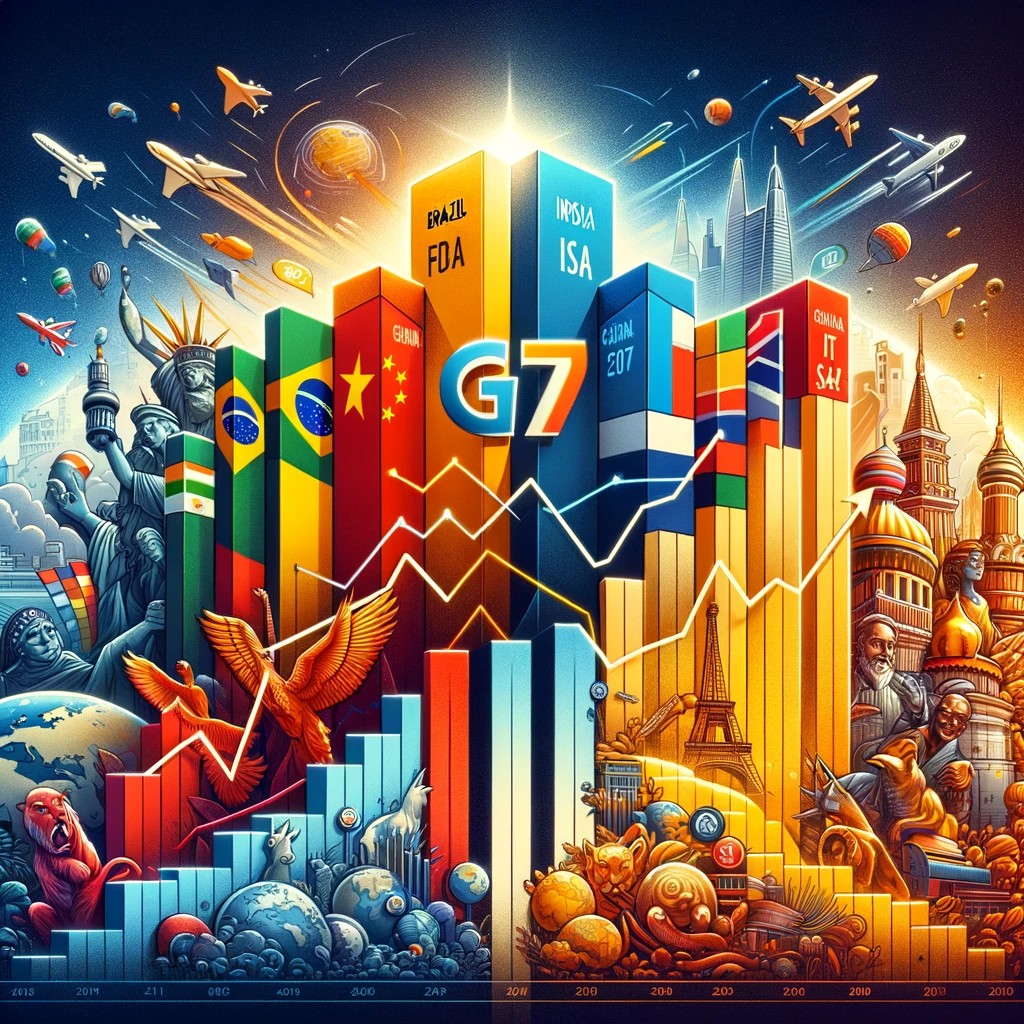2023 marked a pivotal shift in global economic dynamics, with the BRICS alliance outstripping the G7 nations in terms of collective GDP. This shift is not just about numbers; it’s a clear signal of the changing tide in global economic power. The BRICS bloc now accounts for a staggering 32% of the world’s GDP, eclipsing the G7’s 30%. It’s like watching the underdog team score a winning goal in the final minutes of the game.
This transition isn’t a fluke or a temporary blip. It’s the result of strategic moves and an expanding alliance. The BRICS bloc’s ranks swelled in 2023 with the addition of heavyweights like Saudi Arabia, the United Arab Emirates, Iran, Egypt, and Ethiopia. This expansion isn’t just adding numbers; it’s bringing diverse economic powerhouses into the fold, each with its own unique strengths and resources.
BRICS Expansion and Economic Powerplay
This year’s expansion of the BRICS bloc is historic, both in terms of timing and significance. For the first time, the group opened its doors to new members, welcoming six countries to join their collective effort. This move isn’t just about increasing numbers; it’s a calculated strategy to dilute the dominance of the U.S. dollar in global trade. The BRICS nations are pushing for de-dollarization, favoring local currencies in their trade deals. It’s a bold move, signaling a clear challenge to the traditional economic order dominated by the West.
What’s particularly noteworthy is the bloc’s GDP (PPP) surpassing that of the G7. This achievement is a testament to the BRICS nations’ growing economic clout on the global stage. Analyst Richard Dias from UK-based Acorn Macro Consulting highlighted the increasing GDP disparity between the two blocs, predicting an even wider gap in the coming years, especially with BRICS’ recent expansion.
The shift in economic power is underscored by China surpassing the United States as the world’s largest economy back in 2014. The International Monetary Fund (IMF) recorded China’s GDP (PPP) at an impressive $30 trillion, leaving the U.S. trailing at $25 trillion. This isn’t just a change of guard; it’s a complete overhaul of the global economic landscape.
Geopolitical Implications and Challenges
The expansion of BRICS into a formidable 11-member bloc is set to redefine geoeconomics and geopolitics. The new entrants – Argentina, Egypt, Ethiopia, Iran, the UAE, and Saudi Arabia – are not just mere additions; they bring significant economic and strategic value to the table. This expansion is shaping up to be a counterweight to the G7’s influence, reshaping discussions on everything from global oil markets to international conflicts.
However, the inclusion of countries like Iran and Saudi Arabia is not without its complications. It brings a new set of dynamics and potential conflicts within the bloc, particularly given their divergent political stances and alliances. The China-Russia-Iran axis within BRICS could push the group towards more anti-Western positions, making global consensus-building, especially in forums like the G20, increasingly challenging.
The inclusion of these Middle Eastern powerhouses also reflects a diplomatic thawing among them, facilitated in part by China. Their membership in BRICS is a strategic move, aligning them with emerging global powers while diversifying their economic partnerships beyond the West.
At the core of BRICS’ agenda is a concerted effort to diminish the reliance on the U.S. dollar and build alternative financial systems. This move could significantly alter the global economic landscape, reducing the U.S.’s leverage in international finance and trade. It’s a bold strategy, one that could either redefine global economic relations or lead to increased fragmentation and rivalry.





